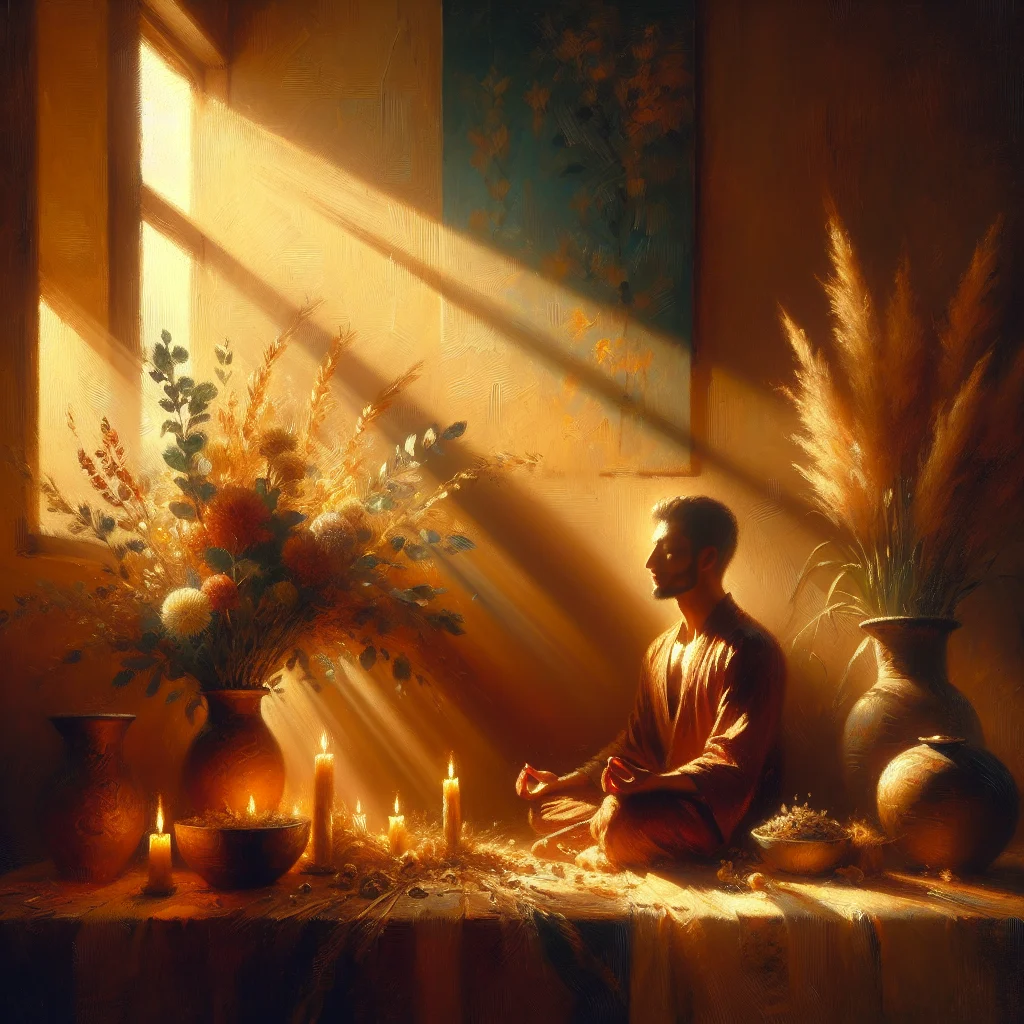Understanding Why Spiritual Awakenings Are So Painful
Have you ever asked yourself why are spiritual awakenings so painful when they’re supposed to be enlightening? The irony of it all is that the very process designed to bring clarity and freedom often starts with confusion, fear, and emotional upheaval. If you’re in the midst of a spiritual awakening, you may feel isolated or even like you’re losing your mind. But you’re not alone—and what you’re experiencing is more common than you might think.
Before you dive deep into this introspective journey, it’s helpful to have tools that support your grounding and peace. One highly recommended resource is Everyday Calm: A Beginner’s Guide to Daily Meditation—a gentle guide to help you stay centered through the emotional turbulence of awakening.

What Is a Spiritual Awakening?
A spiritual awakening is the process of becoming more aware of your true self and your connection to the universe. It’s often described as a shift in consciousness that allows you to shed ego-based beliefs and begin living more authentically. Although this sounds liberating, the awakening process is not always a joyful ride. In fact, it’s often deeply challenging.
According to Wikipedia, spiritual awakenings can involve a series of psychological, emotional, and sometimes physical upheavals that completely alter how one views reality.
The Role of Ego Death
One reason why spiritual awakenings are so painful is because they often involve the “death” of the ego. Your ego has spent years building a sense of identity—your job, relationships, achievements, and even your traumas. When awakening begins, this constructed personality starts to crumble, leading to existential fear and emotional discomfort.
You may begin to question everything you once believed in. This “void” creates space for higher awareness, but the transition is rarely smooth. As a result, symptoms like anxiety, insomnia, or even physical nausea can emerge as your energy shifts.
Common Emotional Experiences During Awakening
The pain of spiritual awakening isn’t just about losing your old self—it often manifests through emotional turmoil. Here are some of the most common emotional challenges you may face:
1. Deep Sadness or Depression
Feeling despondent or hopeless is often an early sign. You’re mourning the “old you,” and everything that identity included. It’s not uncommon to wonder does spiritual awakening make you depressed? You might feel as though you’re experiencing a breakdown when, in reality, it’s a breakthrough.
2. Overwhelming Fear
As your beliefs start to implode, fear arises. How will others see the new you? What if you lose your job, your relationship, or your sense of stability? These fears stem from the ego’s resistance to change. Over time, as your awareness grows, fear is often replaced by a deeper trust in life.
3. Existential Crisis
You may start asking questions like “Why am I even here?” or “What’s the point of anything?” While uncomfortable, this existential inquiry is a natural part of spiritual evolution. Exploring these questions can ultimately lead to profound wisdom and inner peace.
Physical Symptoms of Spiritual Awakening
Although most people focus on the emotional side of awakening, the physical body is also affected. People have reported experiencing:
- Chronic fatigue
- Head pressure or headaches
- Vertigo or dizziness
- Digestive issues
- Random aches and pains
These symptoms may have no clear medical cause and can be the body’s way of processing energetic shifts. Always consult a healthcare provider to rule out medical concerns, but also recognize the deeper changes that could be at play.
Why Growth Requires Discomfort
No seed becomes a tree without breaking through its shell. Similarly, no human evolves without discomfort. Spiritual awakening often triggers old traumas and suppressed emotions. It’s like pulling back the curtain on everything you’ve avoided. The pain isn’t a punishment; it’s the path.
Consider reading Why Is Spiritual Awakening So Hard? for a closer look into the gritty, raw stages of this process. It helps to know you’re not alone in this storm—it’s all leading you somewhere sacred.
The Shift in Perspective
Eventually, the fog starts to lift. You begin to notice signs of alignment, synchronicities, and a lighter emotional load. This doesn’t mean you’ll never experience hardship again. But your response to those hardships becomes more grounded, wise, and intentional.
How to Navigate the Pain of Awakening
Yes, it hurts—but there are ways to support your emotional and energetic well-being through it. Here’s what can help:
1. Grounding Practices
Spending time in nature, mindful breathing, and physical movement help keep you grounded. Activities like journaling and gentle yoga can also help you process shifting emotions.
2. Connect With Community
Isolation is a common part of awakening, but connection is crucial. Seek out like-minded individuals, online groups, or spiritual mentors. Sharing your experiences can reduce the intensity of emotional isolation.
3. Embrace Stillness
Rather than chasing answers, allow silence to guide you. Meditation practices can help you develop a relationship with your inner world. Our guidebook Everyday Calm is a great starting point if you’re new to meditation.
4. Reframe the Pain
Instead of viewing your discomfort as a crisis, see it as a recalibration. You’re not falling apart—you’re shedding layers that no longer serve you. Every painful moment is a step toward your most authentic self.
5. Use Practical Tools
Tools like energy healing, journaling prompts, or even embracing inspirational words can support you. Check out uplifting Inner Peace Quotes for Instagram to bring simple reminders of peace into your day.
Take your healing to another level with The Self-Love Reset: A Journey to Rediscover Yourself—a tool made for those ready to rebuild with compassion.

Final Thoughts
So, why are spiritual awakenings so painful? Because they demand that we unlearn, unravel, and ultimately remember who we truly are. They break us only to rebuild us wiser, softer, and freer. Pain is not the enemy—it’s the teacher. And when viewed through the right lens, the pain of awakening can become the beginning of a new, radiant chapter.
If you’re currently moving through this intense transformation, consider exploring more from our Spirituality & Inner Work or Mental Health & Wellbeing categories for further guidance.
And if you’re ready to truly deepen your connection between mind and manifestation, Manifest Your Dreams: A Practical Guide to the Law of Attraction may be the next step in your awakening journey.

